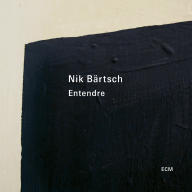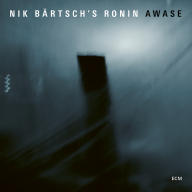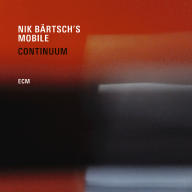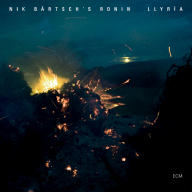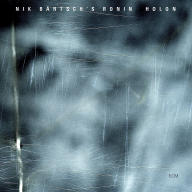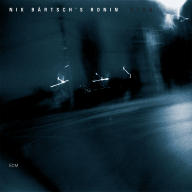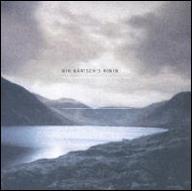A native and resident of Zurich, Switzerland born in 1971, Bärtsch began piano studies at age nine, and briefly took up clarinet. Listening to blues, jazz, and string quartets, Béla Bartók, Igor Stravinsky, and ethnic musics from Japan, Greece, Romania, and Sweden, all assisted in shaping his system of personalized music. Initially influenced by Chick Corea, Bärtsch attended the Zurich Musikhochschule, and studied philosophy, linguistics, and musicology at the University of Zurich.
While attending school, he began listening to 20th century modernist, avant-garde composers John Cage, Morton Feldman, and Steve Reich, thus fusing his multiplicity of disciplines. In 1980, he first met drummer Kaspar Rast, who became a rhythmic fixture in his ensembles Mobile and Ronin. He performed and toured with the European guitarist Harald Haerter before performing and recording solo and trio efforts, leading to his initial small ensembles for the Swiss-based Tonus label. When Mobile evolved into Ronin in 2001, Bärtsch established his distinct and unique ritual groove music, playing every Monday night at the night club Montags in Zurich, and attracting attention for his spiritual, minimalist, ethnic, rhythm & blues-elevated music, which has generally been called "Zen funk." Over the years, he has continued that regular Monday night gig while touring greater Europe, Canada, and the U.S.
ECM Records owner Manfred Eicher recognized not only Bärtsch's original approach, but its similarity to the music the label has championed since the early '70s. He signed the band and released the album Stoa in 2006 (2007 in the United States). Ronin expanded to a quintet with stalwart Rast, percussionist Andi Pupato, bassist Björn Meyer, and saxophonist/bass clarinetist/guitarist Sha. Holon followed in 2008 to wider acclaim. In 2009, Bärtsch and a business partner opened the club Exil in Zurich, and became one of three co-artistic directors of the city's Apples and Olives Festival.
Bärtsch, ever confident in his band's musical potential, expanded his composing palette. Moving further afield from the "Zen funk" that typified both Mobile and Ronin up to that point, he began employing elements of modern classical composition in their repertoire. This new direction was documented on 2010's Llyrìa. Ronin Live, issued in 2012, documented concert recordings from 2009 through 2011.
After Ronin's intense touring and recording activity of the previous few years, Bärtsch settled into running his club and working on Apples and Olives, spending time with his family, and teaching.
Bärtsch formally resurrected Mobile in late 2014. The quartet included Sha, Rast, and new drummer Nicolas Stocker (Bells for Pony, Marylane). The bandleader extended the ensemble for his next recording with a string quintet that included violinist Etienne Abelin (his co-artistic director of Apples and Olives). This group recorded Continuum in Lugano in March of 2015, with Eicher as producer. It was released a year later ahead of an international tour.
Bärtsch reconvened Ronin in early 2017 after a six-year hiatus; he trimmed the band from a quintet to a quartet, and hired a new bassist in Thomy Jordi. In October, they entered Studios La Buissonne with producer Manfred Eicher. They revisited early Bärtsch "Moduls" alongside new compositions, including a piece by reedman Sha (it was the first time the group recorded a non-Bärtsch composition). The studio sessions netted the full-length Awase -- a term from martial arts that means "moving together" -- issued by ECM in May 2018.
In 2019, Bärtsch performed a solo piano work at New York City's Lincoln Center as part of ECM's 50th Anniversary celebration. Though he'd always composed solely on the piano, the performance -- and subsequent performances on tour -- unlocked something in his musical thinking. Bärtsch has always considered his numbered "Modul" pieces as templates rather than fixed compositions. In September of 2020 he entered Lugano's Auditorio Stelio Molo RSI with producer Manfred Eicher and engineer Stefano Amerio. He cut a series of revisioned and sometimes radically recombined "Modul" works and the closing etude "Deja Vu -- Vienna," as a solo piano recital. The finished album was titled Entendre. It was released in March 2021 just as Sweden's Lars Müller Publishers prepared Bärtsch's book, Listening: Music - Movement - Mind for release. The album was an unofficial but spectrally linked companion to Entendre, which charted the philosophy behind and development of the composer's "ritual groove music" system. ~ Michael G. Nastos & Thom Jurek, Rovi
|
1
|
|
Modul 36 |
|
2
|
|
Modul 58_12 |
|
3
|
|
Modul 26 |


